Anti-psychiatry, sometimes spelled antipsychiatry, is a movement based on the view that psychiatric treatment can be often more damaging than helpful to patients. The term anti-psychiatry was coined in 1912, and the movement emerged in the 1960s, highlighting controversies about psychiatry. Objections include the reliability of psychiatric diagnosis, the questionable effectiveness and harm associated with psychiatric medications, the failure of psychiatry to demonstrate any disease treatment mechanism for psychiatric medication effects, and legal concerns about equal human rights and civil freedom being nullified by the presence of diagnosis. Historical critiques of psychiatry came to light after focus on the extreme harms associated with electroconvulsive therapy and insulin shock therapy. The term "anti-psychiatry" is in dispute and often used to dismiss all critics of psychiatry, many of whom agree that a specialized role of helper for people in emotional distress may at times be appropriate, and allow for individual choice around treatment decisions.
Psychosurgery, also called neurosurgery for mental disorder (NMD), is the neurosurgical treatment of mental disorders. Psychosurgery has always been a controversial medical field. The modern history of psychosurgery begins in the 1880s under the Swiss psychiatrist Gottlieb Burckhardt. The first significant foray into psychosurgery in the 20th century was conducted by the Portuguese neurologist Egas Moniz who, during the mid-1930s, developed the operation known as leucotomy. The practice was enthusiastically taken up in the United States by the neuropsychiatrist Walter Freeman and the neurosurgeon James W. Watts who devised what became the standard prefrontal procedure and named their operative technique lobotomy, although the operation was called leucotomy in the United Kingdom. In spite of the award of the Nobel prize to Moniz in 1949, the use of psychosurgery declined during the 1950s. By the 1970s the standard Freeman-Watts type of operation was very rare, but other forms of psychosurgery, although used on a much smaller scale, survived. Some countries have abandoned psychosurgery altogether; in others, for example the US and the UK, it is only used in a few centres on small numbers of people with depression or obsessive-compulsive disorder (OCD). In some countries it is also used in the treatment of schizophrenia and other disorders.
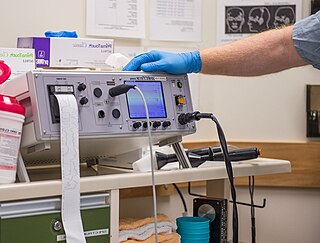
Electroconvulsive therapy (ECT) or electroshock therapy (EST) is a psychiatric treatment during which a generalized seizure is electrically induced to manage refractory mental disorders. Typically, 70 to 120 volts are applied externally to the patient's head, resulting in approximately 800 milliamperes of direct current passing between the electrodes, for a duration of 100 milliseconds to 6 seconds, either from temple to temple or from front to back of one side of the head. However, only about 1% of the electrical current crosses the bony skull into the brain because skull impedance is about 100 times higher than skin impedance.

Ramsey Campbell is an English horror fiction writer, editor and critic who has been writing for well over fifty years. He is the author of over 30 novels and hundreds of short stories, many of them winners of literary awards. Three of his novels have been adapted into films.

Girl, Interrupted is a best-selling 1993 memoir by American author Susanna Kaysen, relating her experiences as a young woman in an American psychiatric hospital in the 1960s after being diagnosed with borderline personality disorder.

Alastair John Campbell is a British journalist, author, strategist, broadcaster, and activist, who is known for his political roles during Tony Blair's leadership of the Labour Party. Campbell worked as Blair's spokesman and campaign director in opposition (1994–1997), then as Downing Street Press Secretary, and as the Prime Minister's Official Spokesperson (1997–2000). He then became Downing Street's director of communications and spokesman for the Labour Party (2000–2003).
Richard Bentall is a Professor of Clinical Psychology at the University of Sheffield in the UK.

The Atrocity Exhibition is an experimental novel of linked stories or "condensed novels" by British writer J. G. Ballard.
Works of fiction dealing with mental illness include:
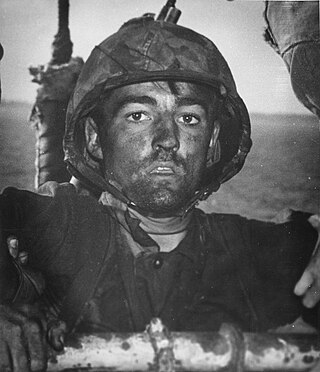
Combat stress reaction (CSR) is acute behavioral disorganization as a direct result of the trauma of war. Also known as "combat fatigue", "battle fatigue", "operational exhaustion", or "battle/war neurosis", it has some overlap with the diagnosis of acute stress reaction used in civilian psychiatry. It is historically linked to shell shock and is sometimes a precursor to post-traumatic stress disorder.
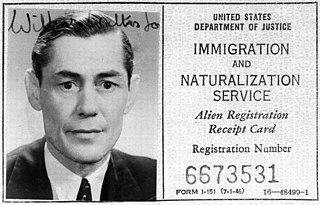
William Walters Sargant was a British psychiatrist who is remembered for the evangelical zeal with which he promoted treatments such as psychosurgery, deep sleep treatment, electroconvulsive therapy and insulin shock therapy.
Bicameral mentality is a hypothesis introduced by Julian Jaynes who argued human ancestors as late as the ancient Greeks did not consider emotions and desires as stemming from their own minds but as the consequences of actions of gods external to themselves. The theory posits that the human mind once operated in a state in which cognitive functions were divided between one part of the brain that appears to be "speaking" and a second part that listens and obeys—a bicameral mind—and that the breakdown of this division gave rise to consciousness in humans. The term was coined by Jaynes, who presented the idea in his 1976 book The Origin of Consciousness in the Breakdown of the Bicameral Mind, wherein he makes the case that a bicameral mentality was the normal and ubiquitous state of the human mind as recently as 3,000 years ago, at the end of the Mediterranean Bronze Age.

Since the founding of the Church of Scientology in 1954 by L. Ron Hubbard, the relationship between Scientology and psychiatry has been dominated by strong opposition by the organization against the medical specialty of psychiatry and of psychology, with themes relating to this opposition occurring repeatedly throughout Scientology literature and doctrine. According to the Church of Scientology, psychiatry has a long history of improper and abusive care. The group's views have been disputed, criticized, and condemned by experts in the medical and scientific community and have been a source of public controversy.

Insulin shock therapy or insulin coma therapy was a form of psychiatric treatment in which patients were repeatedly injected with large doses of insulin in order to produce daily comas over several weeks. It was introduced in 1927 by Austrian-American psychiatrist Manfred Sakel and used extensively in the 1940s and 1950s, mainly for schizophrenia, before falling out of favour and being replaced by neuroleptic drugs in the 1960s.
A war novel or military fiction is a novel about war. It is a novel in which the primary action takes place on a battlefield, or in a civilian setting, where the characters are preoccupied with the preparations for, suffering the effects of, or recovering from war. Many war novels are historical novels.

Regeneration is a 1997 British film, directed by Gillies MacKinnon, an adaptation by Allan Scott of the 1991 novel of the same name by Pat Barker. It was released as Behind the Lines in the US in 1998.
"O alienista" is a satiric novella written by the Brazilian author Machado de Assis (1839–1908). The story ran in Rio de Janeiro's newspaper A Estação, then was published in 1882 as part of the author's short-story collection Papéis avulsos. An English translation was published in 1963.
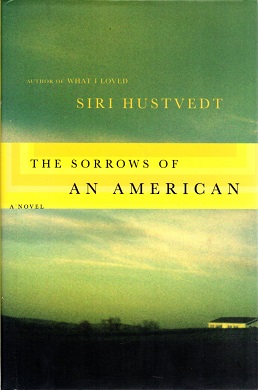
The Sorrows of an American is Siri Hustvedt's fourth novel. It was first published in 2008 and is about a Norwegian American family and their troubles. The novel is partly autobiographical in that Hustvedt herself is of Norwegian descent and in that passages from her own deceased father's journal about the Depression in America and the Pacific theatre of war during World War II are scattered through the book.
Max Pemberton is a British medical doctor, journalist and author. He works full-time as a psychiatrist in the National Health Service (NHS). He is a weekly columnist for the Daily Mail, writing comment on news events concerning culture, social and ethical issues, the politics of health care and the NHS. Before his move to the Daily Mail, he was a columnist for the Daily Telegraph. He also writes a monthly column for Reader’s Digest and is a regular contributor to The Spectator. He is the editor of Spectator Health, a quarterly supplement from The Spectator.
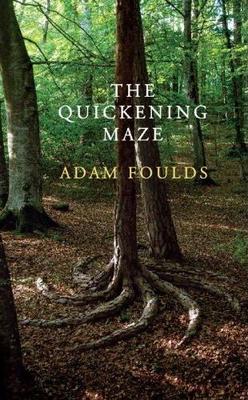
The Quickening Maze is a 2009 historical fiction novel by British poet and author Adam Foulds and published by Jonathan Cape. The book received the Encore Award (2009), European Union Prize for Literature (2011) and was shortlisted for Man Booker Prize (2009) and Walter Scott Prize (2010). The book is based on the historical backdrop of a mental asylum run by Matthew Allen at High Beach in late 1830s and 1840s which had English poet John Clare admitted therein. Alfred, Lord Tennyson, another notable poet of the era, moves to High Beach to get his brother Septimus treated. All the while, Alfred himself, has to overcome depression after the death of his close friend Arthur Hallam. The book narrates Clare's life, the asylum's effects on both poets and bases its storyline on the popular speculation of whether Clare and Tennyson had ever met.












